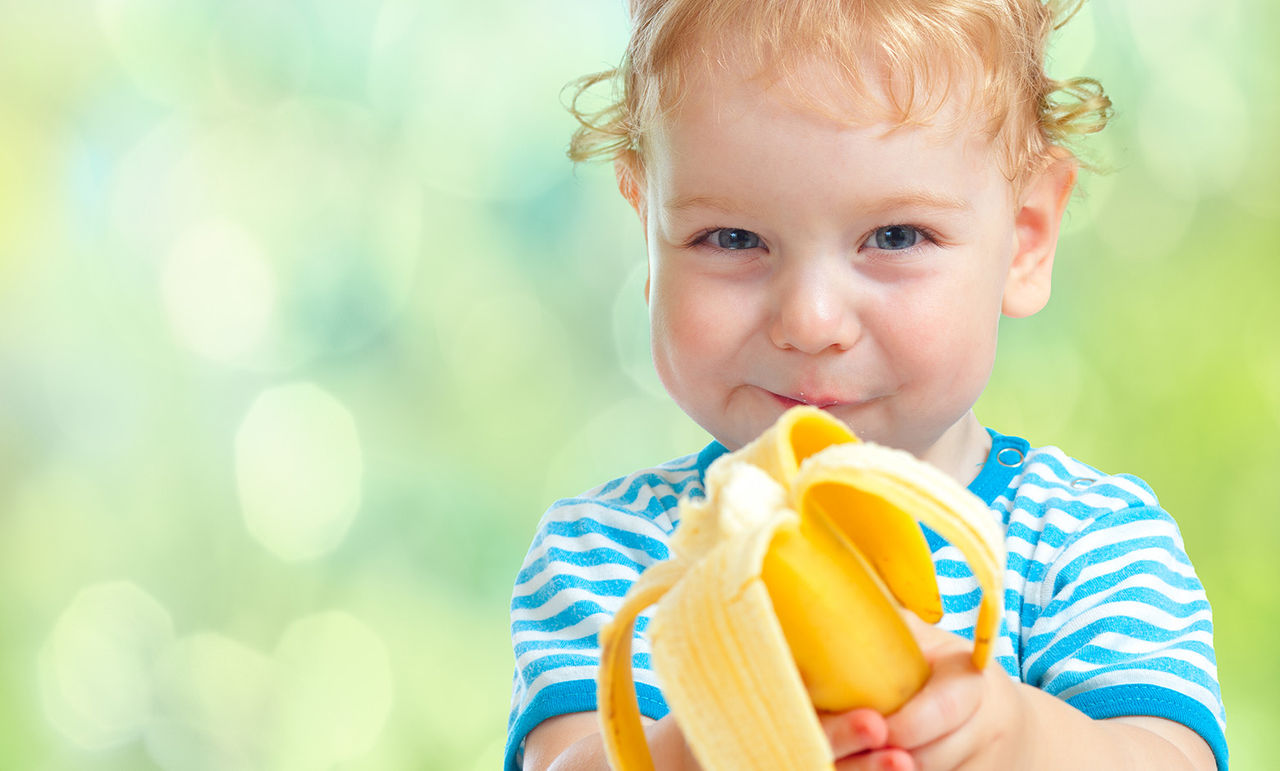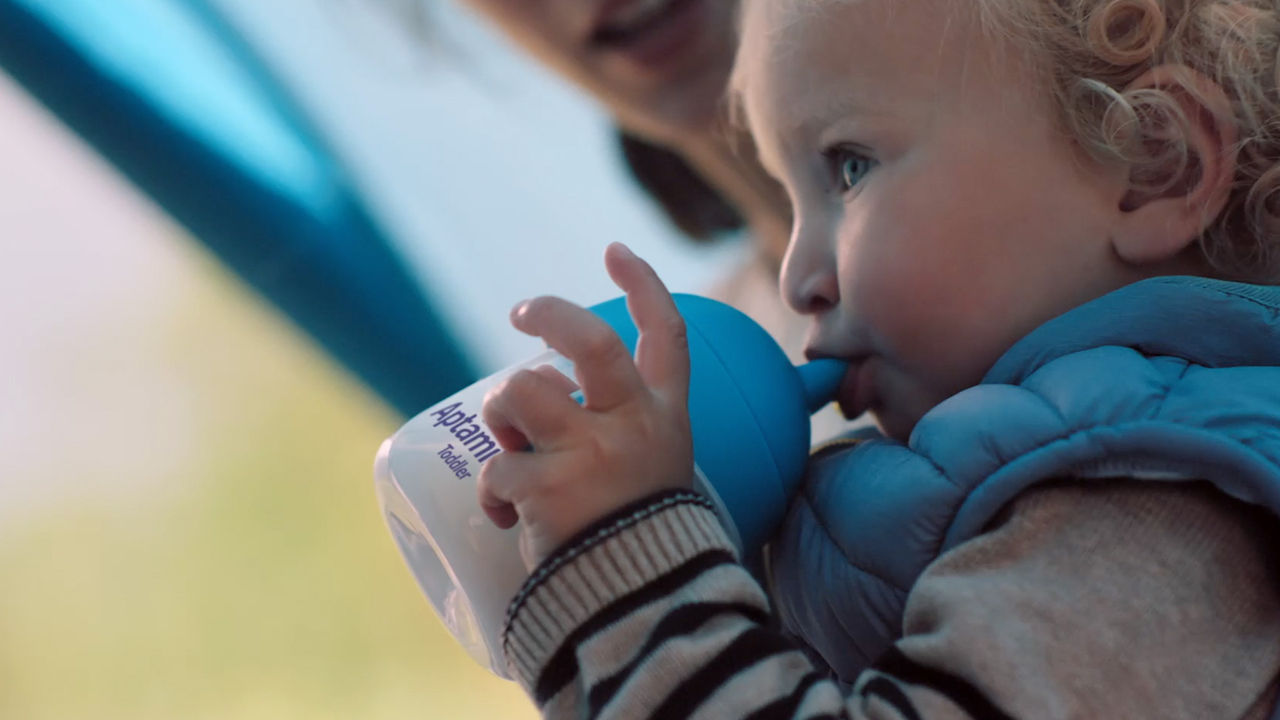Strengthening your toddler’s immune system
Your toddler’s immune system is continually changing, adapting and strengthening in response to external factors. Exposure to germs helps the immune system learn how to defend itself and builds resistance to infections. A wide range of nutrient-rich foods, as well as good sources of prebiotics, will help to build up your child’s immunity and contribute to their long-term health. The following are the main nutrients and vitamins that will help to boost strengthen your toddler’s immune system.
Prebiotic oligosaccharides (prebiotics)
Prebiotics encourage the beneficial bacteria that populate your toddler’s stomach and protect against potentially harmful bacteria. Prebiotics are found naturally in these foods:
- Bananas
- Onions
- Tomatoes
- Asparagus
- Garlic
- Artichokes
- Whole-wheat foods
Some growing-up milks also contain prebiotics and can complement a balanced diet.
Iron
Iron plays a key role in the formation of haemoglobin, the protein in red blood cells that transports oxygen around the body. It supports normal cognitive development for toddlers and a lack of it can leave them susceptible to infection. Try to include the following iron-rich foods in your child’s meals:
- Meat — especially red meat
- Beans
- Nuts
- Dried fruit such as dried apricots
- Wholegrains such as brown rice
- Fortified growing-up milks
- Fortified breakfast cereals
- Soya bean flour
- Dark green, leafy vegetables such as spinach and curly kale
Zinc
Zinc, a mineral found in all body tissue, aids the creation of new cells and the enzymes needed to support the normal development of your toddler’s immune system. It also helps to heal wounds. The body doesn’t store zinc, so it’s important to include good sources in your child’s diet each day. Foods containing zinc include:
- Meat
- Milk
- Cheese
- Bread
- Cereal products
Vitamin D
Vitamin D plays a part in the normal development of your toddler’s immune system, growth and defence against infections. It is also linked to the prevention of allergies. The most effective source of vitamin D is sunlight — the body produces it when ultraviolet-B rays shine on the skin. Check with your healthcare professional whether a supplement is required. Food sources of vitamin D include:
- Oily fish, such as salmon and mackerel
- Eggs
- Mushrooms
- Aptamil Toddler Milk
- Fortified margarine
- Fortified breakfast cereals (check the label)
Vitamin C
Vitamin C is needed by white blood cells to fight infection, and is a natural antioxidant. It helps to protect cells and keep your toddler healthy, while aiding the healing process and increasing the body’s ability to absorb iron. Vitamin C-rich foods include:
- Capsicum
- Broccoli
- Brussels sprouts
- Sweet potatoes
- Oranges
- Kiwi fruit
Vitamin A
Vitamin A supports your toddler’s immune system by helping generate antibody response and supporting immune cell function. Your toddler can get vitamin A from:
- Liver (spread)
- Cheese
- Eggs
- Fortified low-fat spreads
- Yogurt
- Dark green and orange vegetables and fruit — these contain beta-carotene, a substance that the body can convert into vitamin A. Good sources of beta-carotene include carrots, sweet potatoes, swede, mango, spinach, dark green cabbage and kale.
What should you do?
Here are some ideas for meals and snacks to support your toddler’s immune system as it develops:
- Spaghetti bolognese — served with wholegrain pasta
- Tuna and cheese melts on wholemeal toast
- Scrambled eggs with grilled, sliced tomatoes and avocado
- A baked sweet potato with mashed sardines and sweetcorn
- Natural yogurt with fresh blueberries and chopped banana
If you are concerned that your toddler is not receiving the correct balance of nutrients, Aptamil Toddler Milk can help as a supplement to their food, providing the ingredients they need for normal growth and development.





